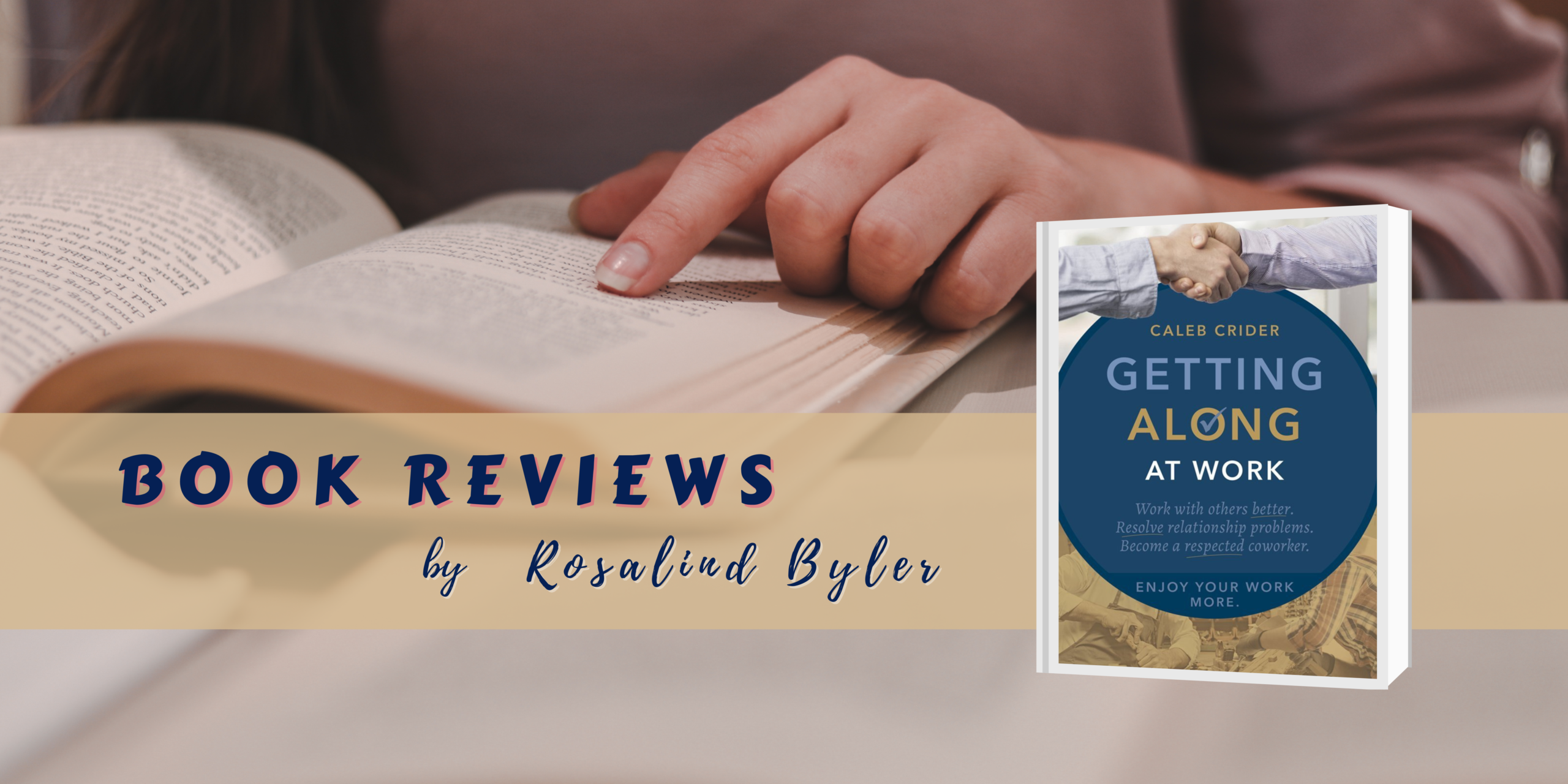Book Reviews
Getting Along at Work, by Caleb Crider | Review by Rosa Byler

Relationships between employees can significantly affect anyone’s enjoyment of his work and potentially the productivity of the whole organization. Some large business establishments have trained HR personnel who can help their workforce interact more effectively; in smaller settings with fewer staff, employees generally manage relationships on their own unless major conflict erupts. Yet leaving relational success to trial and error can be costly, and personal motivation can ebb and flow. Getting Along at Work, by Caleb Crider, provides not only inspiration but also practical instruction on fostering “relationships that work smoothly (ix).”
The book is organized into three sections. The first, entitled “Working on Me,” begins with scriptural and practical rationale for intentionally pursuing good work relationships. Not surprisingly, the first point is that “getting along well honors God.” Crider draws attention to other benefits such as “less stress and frustration” and more productivity, efficiency, opportunities, trust, and respect in the workplace (8).
This section centers on personal development (after all, who can accomplish lasting change in anyone but himself? J) Ten possibilities for growth and progress merit a chapter apiece. These include having realistic expectations, understanding spiritual realities, thinking differently about differences, and becoming a “professional.” (While this word tends to be associated with training and education, Crider outlines a number of surprising components that are accessible to anyone.) My favorite chapter in this section is the obviously Proverbs-sourced “Put Humility to Work for You.” Defensiveness hampers our ability to learn from criticism, and “maintaining a front of being the best” can keep us from actually doing the best (60). Humility, on the other hand, is freeing.
The focus of the second section is “Working with Others.” What constitutes a good apology? How can your responses make people hesitant to approach you with questions or suggestions? Why are friendly greetings important? When things go wrong, is it still possible to act right? How do courteous and respectful habits help people to “walk away from us better off than when they came (93)”? These and other questions are addressed in work-specific settings. Relational complexities with coworkers are not the only occupational hazard: Crider includes a short chapter on how to please employers.
All good teachers know that stories are the way to make principles memorable, and the last section features three “case studies” ranging in scope from Bible times to recent history. Daniel, a God-fearing Hebrew professional in Babylon, endured an unsuccessful attempt by his colleagues to turn the “boss” against him. Abraham Lincoln did the unthinkable in choosing former rivals for his Cabinet simply because they were the best men for the job. In 2010, thirty-three Chilean miners were trapped for two months underground when a tunnel collapsed—a situation that could certainly cause ordinary work tensions to escalate. These stories showcase integrity, diplomacy, good attitudes, humility, and even humor as significant elements of getting along well with others.
As Crider states in the introduction, the book is “commonsense advice” rather than “professional counsel.” Much of the material, although directed at workplace relationships, is applicable to other interpersonal relationships as well. Additional complications surface when working with people of other cultures or worldviews; Crider does not address those in detail. “Take it to Work” exercises at the end of each chapter add to the book’s practical helpfulness.
Young Anabaptist authors who write well are an encouragement. I hope we hear more from this one!